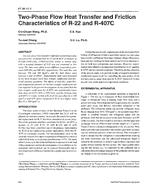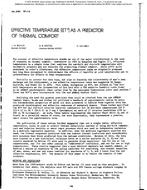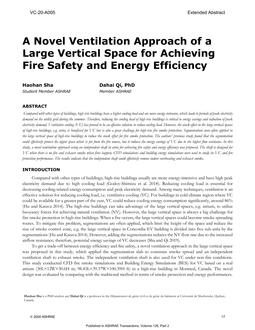Thermal storage systems remove heat from or add heat to a storage medium for use at another time. Thermal energy storage (TES) for HVAC and/or domestic water-heating applications can involve various temperatures associated with heating or cooling. High-temperature storage is typically associated with solar energy or high-temperature heating, and cool storage with air-conditioning, refrigeration, or cryogenic-temperature processes. Energy may be charged, stored, and discharged daily, weekly, annually, or in seasonal or rapid batch process cycles. Fast-acting and/or grid-interactive energy storage systems can provide balancing services and other critical needs of the electric grid, such as frequency control and renewable energy integration. These grid-interactive systems dynamically couple consumer energy usage to the grid’s real-time needs. Historically, thermal storage has been used for comfort and process heating and cooling applications as a way to reduce the total utility bill and/or size of heating and cooling equipment. Dorgan and Elleson (1993) cover cool storage issues and design parameters in detail.
Sensible Thermal Storage Technology
Chilled-Water Thermal Storage Sizing Examples
Chiller and Ice Storage Selection
Heat Storage Technology
Sizing Cool Storage Systems
Application of Thermal Storage Systems
Operation and Control
Other Design Considerations
Cost Considerations
Maintenance Considerations
Commissioning
Good Practices
ISBN: 978-1-939200-26-6 (for I-P versions of chapters)
ISSN: 1078-6066 (for I-P versions of chapters)
Citation: 2016 ASHRAE Handbook — HVAC Systems and Equipment: Chapter 51, Thermal Storage
Product Details
- Published:
- 2016
- ISBN(s):
- 9781939200266
- Number of Pages:
- 41
- Units of Measure:
- I-P
- File Size:
- 1 file , 3 MB
- Product Code(s):
- D-S512016IP


